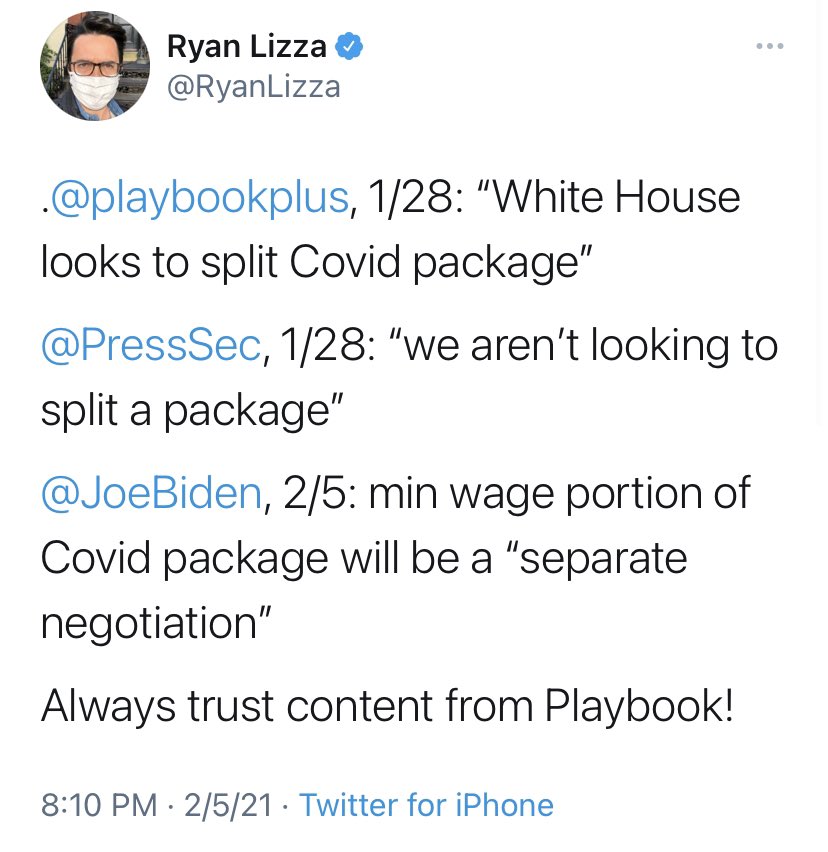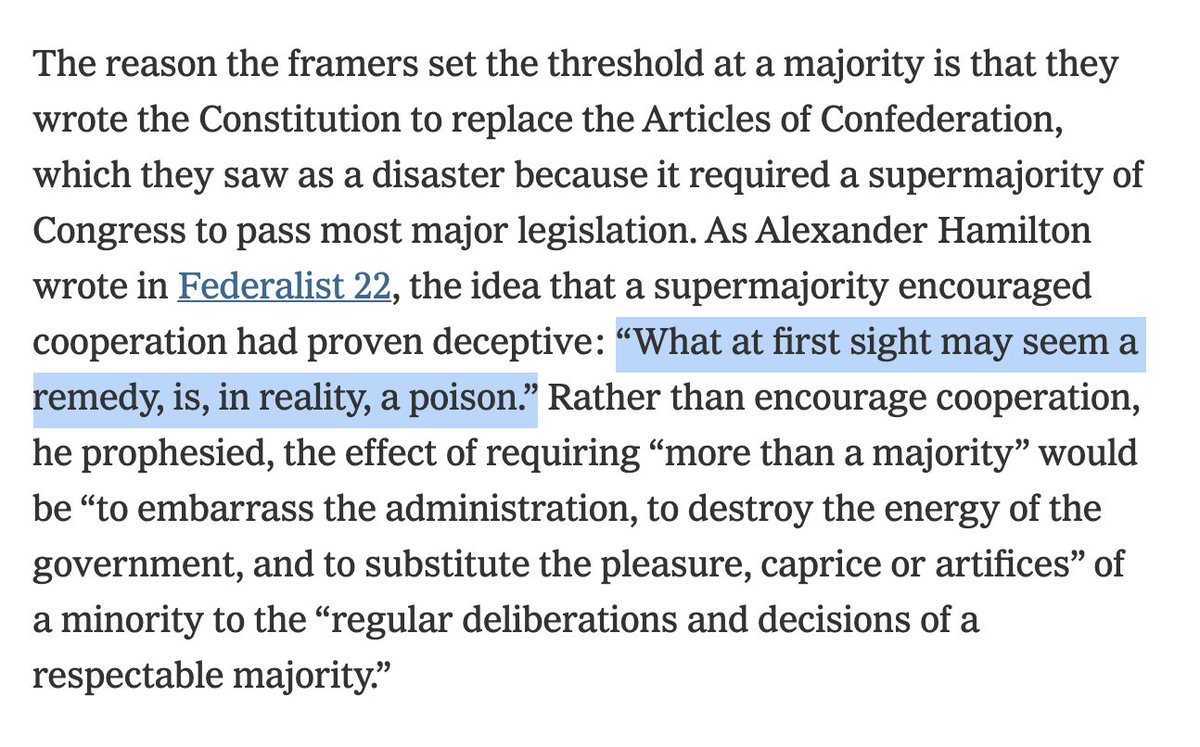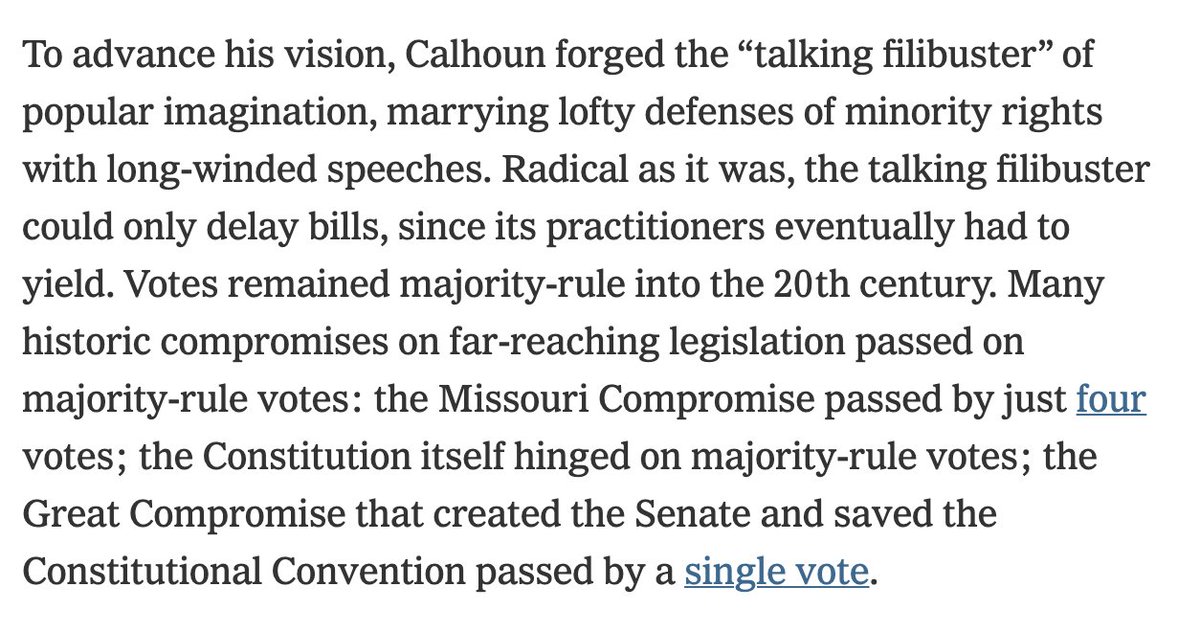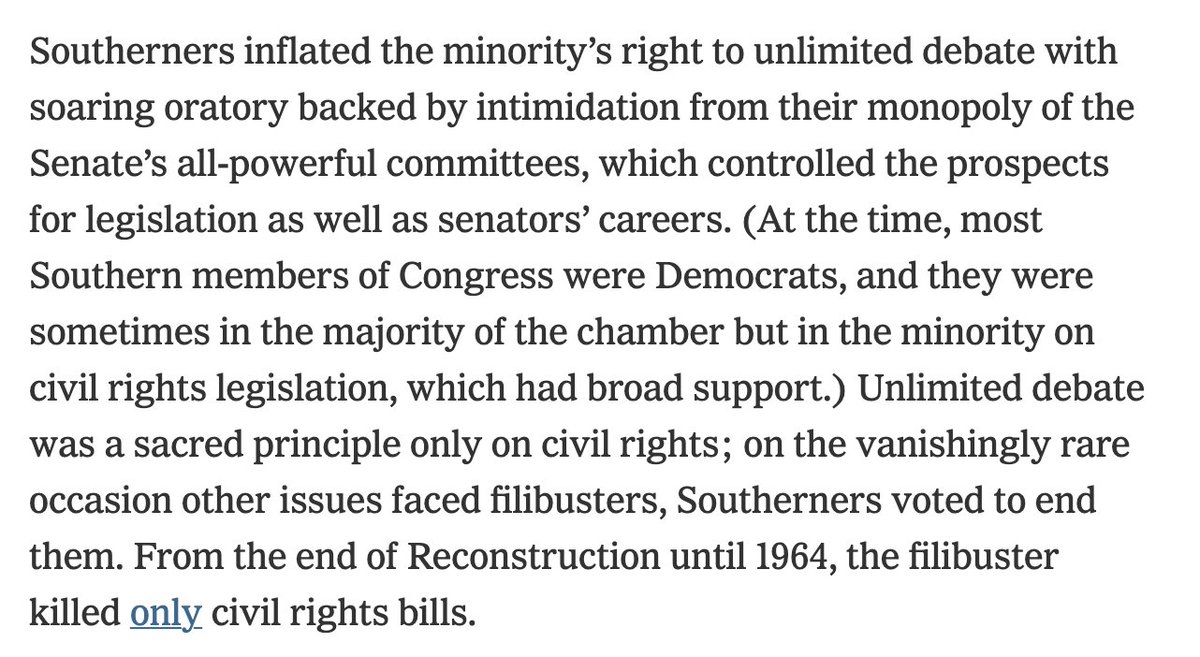
This is a particularly silly brand of trolling. If Tanden had needed 60 she wouldn’t have had a chance. Even in a majority-rule Senate, some progressive priories won’t make it. But they all will stand a much better chance than in a 60-vote Senate, where they’re simply doomed.
https://twitter.com/billscher/status/1364091755360968705
At this point, many of the arguments of filibuster defenders rely heavily on caricaturing the arguments of reformers. The idea that we forgot that Manchin exists falls into that category. A post-filibuster Senate won’t be a progressive utopia, but it will be much, much better.
Exactly. The reason the Senate didn’t have a filibuster in the first place is that our system has plenty of checks and balances without it. The fact that it will still be hard to get things done rebuts the argument the eliminating the filibuster will lead to legislative whiplash.
https://twitter.com/dvglasgow/status/1364208265236647945
• • •
Missing some Tweet in this thread? You can try to
force a refresh









